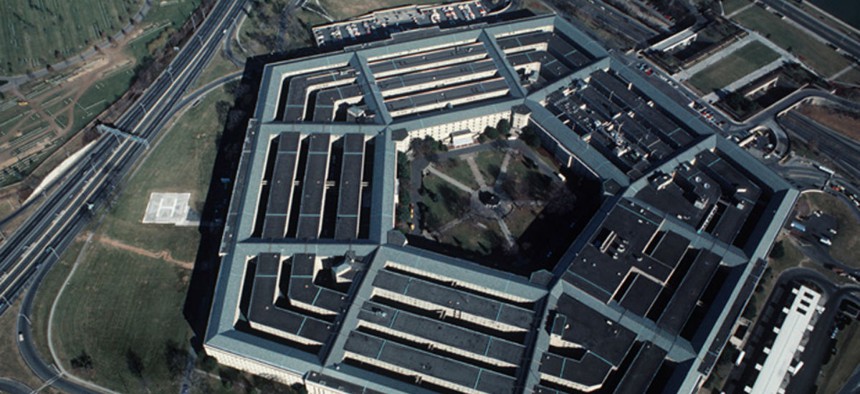White House Objects to Ban on New BRAC in Defense Bill
No veto threatened, but Trump team seeks savings in base closures.
The White House on Wednesday issued a detailed list of objections to provisions in the fiscal 2018 National Defense Authorization Act (H.R. 2810, S. 1519) that is headed to floor votes in the House and Senate this month.
Among the complaints—which did not prompt a veto threat—is the prohibition in both the House and Senate versions on another round of the Base Realignment and Closure Commission process.
Though the bill authorizes $285.8 million for activities based on the 2005 BRAC round, the current Section 2702—“would affirm that nothing in this act shall be construed to authorize an additional Base Realignment and Closure (BRAC) round.”
The administration “strongly objects” to section 2702, the White House wrote, and “strongly urges Congress to provide BRAC authorization as requested so that DoD can ensure it is not wasting scarce resources on unneeded infrastructure. The department estimates that a new BRAC round in 2021 would save it an additional $2 billion annually—resources it could apply to higher priorities such as readiness and modernization.”
The White House argued that a new BRAC would “allow DoD to align infrastructure with force structure,” and help with an ongoing strategic reviews. It said it is willing to work with Congress on addressing the issues.
The Trump administration has support for its pro-BRAC position from many in the outside defense policy community.
But Congress for years has been protective of its prerogatives in planning any base closures without submitting to the process of having an outside panel propose closures on an unamendable list that requires an up-or-down vote.
“In the past, BRAC rounds have been used without appropriate study, incur significant costs, and jeopardized valuable military communities,” said Rep. Joe Wilson, R-S.C., last month. "I am grateful that this year’s NDAA specifically prohibits the consideration of a BRAC round.”
House Armed Services Committee Chairman Mac Thornberry, R-Texas, on June 22 told reporters he is not necessarily opposed to a new BRAC if data justify one.
Other White House objections to the current NDAA include the bill’s prescriptions requiring greater use of private audits at the Pentagon to back up the Defense Contract Audit Agency.
And the White House cited “constitutional concerns” about the bill’s elaborations on last year’s NDAA restructuring of the Defense Department’s top acquisition officials to create a chief management officer. “Section 1232 would interfere with the president’s exclusive authority to recognize foreign nations,” the statement said, “and section 921(b) would contravene the Appointments Clause by authorizing incumbent officials to serve in new offices without further appointments.”




